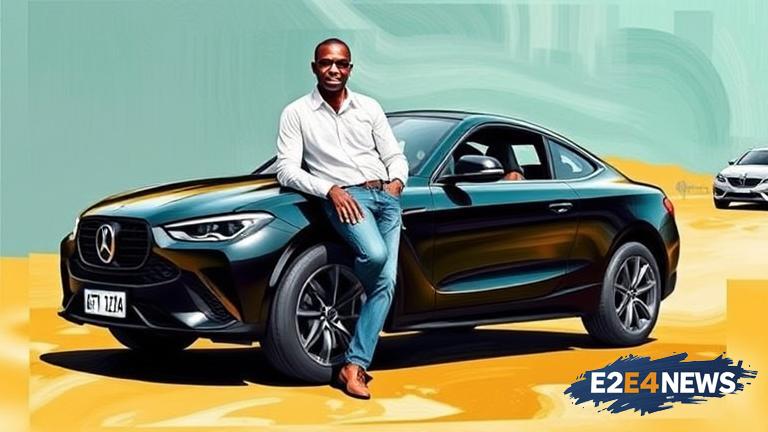In a recent development, Shatta Wale, a renowned Ghanaian dancehall artist, has found himself at the center of a controversy involving the Economic and Organised Crime Office (EOCO). The EOCO, tasked with investigating economic and organized crimes in Ghana, had requested that Shatta Wale disclose the seller of his vehicles. However, through his lawyer, Shatta Wale has reserved the right not to disclose this information, citing that he is not legally obligated to do so. This stance has sparked a heated debate, with many questioning the artist’s decision. The EOCO’s interest in Shatta Wale’s vehicles stems from their ongoing investigations into possible money laundering and other economic crimes. Shatta Wale’s lawyer has argued that the artist has fully cooperated with the EOCO and has provided all necessary documentation regarding his assets. The lawyer further emphasized that revealing the seller of the vehicles would be an invasion of privacy and not relevant to the investigation at hand. Despite this, the EOCO maintains that understanding the source of funds used to purchase the vehicles is crucial to their investigation. The case has raised concerns about the balance between privacy rights and the need for transparency in financial transactions. Many are watching the situation closely, as it could set a precedent for future cases involving high-profile individuals and financial investigations. Shatta Wale, known for his outspoken nature, has not publicly commented on the matter, leaving his lawyer to handle the communications. The dancehall artist has a significant following in Ghana and beyond, and his fans are eagerly awaiting the outcome of this situation. The EOCO, on the other hand, is under pressure to demonstrate its commitment to fighting economic and organized crime without infringing on individual rights. As the situation unfolds, it is clear that the legal team representing Shatta Wale will continue to argue that their client has met all legal requirements and should not be compelled to disclose more than what is legally mandated. The Ghanaian public is divided, with some supporting Shatta Wale’s right to privacy and others believing that transparency is essential in such investigations. The outcome of this case could have implications for how similar investigations are handled in the future. It also highlights the challenges faced by law enforcement agencies in balancing the need for information with individual privacy rights. In conclusion, the decision by Shatta Wale to reserve the right not to disclose the seller of his vehicles to the EOCO has opened up a broader discussion on privacy, transparency, and the legal obligations of individuals in Ghana. As the legal process continues, it will be interesting to see how the court rules on this matter and what implications it may have for future investigations. The case is a reminder of the complex interplay between legal rights, investigative powers, and the public’s right to know. Ultimately, the resolution of this matter will depend on the interpretation of the law and the ability of the legal system to balance competing interests. The situation remains under close observation, with many awaiting the next developments in this intriguing case. The legal fraternity is also keenly watching the proceedings, as the outcome could influence legal precedents and practices in similar cases. Furthermore, the involvement of a high-profile figure like Shatta Wale has brought the issue into the public domain, sparking a necessary conversation about the limits of investigative powers and individual privacy. The EOCO’s pursuit of transparency in financial dealings is commendable, but it must be balanced against the rights of individuals to privacy and protection against unwarranted intrusion. This balance is at the heart of the current debate and will be crucial in determining the outcome of the case. The Chronicle’s coverage of this story and others like it underscores the importance of a free press in holding power to account and providing the public with necessary information to engage in informed discourse. The role of media in such cases cannot be overstated, as it brings to light issues that might otherwise remain hidden from public view. In the context of Ghana, where the fight against corruption and economic crime is ongoing, cases like Shatta Wale’s serve as a reminder of the challenges and complexities involved. The country’s legal system, along with its law enforcement agencies, faces the task of navigating these complexities while respecting the rights of all individuals involved. The public’s interest in this case is a testament to the desire for transparency and accountability in Ghana. As the story continues to unfold, it is likely that more details will emerge, shedding further light on the legal, ethical, and social implications of Shatta Wale’s decision and the EOCO’s investigation. For now, the situation remains a topic of considerable interest and debate, both within Ghana and among those following the story from abroad. The combination of a high-profile figure, legal intricacies, and the broader implications for privacy and transparency has made this a compelling narrative that will continue to attract attention in the coming days and weeks.
